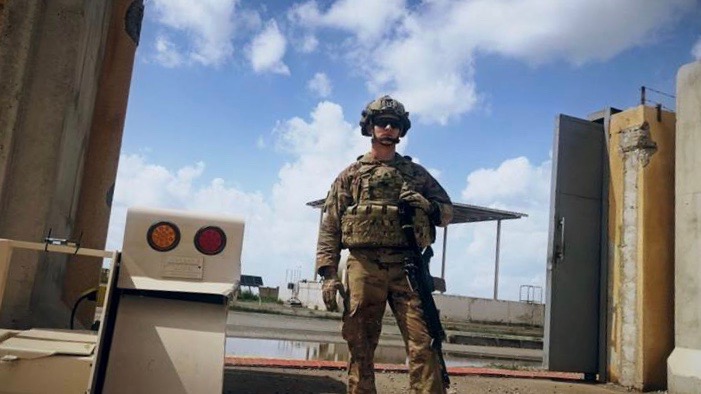Iraqi groups expressed dissatisfaction and opposition to the official announcement of the end of the US combat mission in the country on Thursday, December 9, weeks before the deadline of December 31. The groups pointed to the official declaration by the US that no troops will be withdrawn from Iraq immediately but that the remaining troops will shift their mission to assisting and training the Iraqi forces. The groups have reiterated their demand for a complete withdrawal of foreign troops.
Qasim al-Araji, Iraq’s national security advisor, tweeted, “today we finished the last round of dialogue with the international coalition..to officially announce the end of the combat mission of the coalition forces and their withdrawal from Iraq.”
In a meeting between Iraqi prime minister Mustafa al-Kadhimi and US president Joe Biden in July, it was agreed that all US combat forces will leave the country by the end of year.
Following the US-led invasion of Iraq in 2003, thousands of troops were stationed in the country which were formally withdrawn in 2011. The US redeployed its troops in October 2014 as a part of an international coalition against the Islamic State (IS) terrorist group which threatened to capture whole of Iraq and Syria to establish an Islamic Caliphate in the region. However, the Iraqi forces, with the active support of Iran and the coalition forces, were able to defeat IS and recapture most of the territories from it by 2017. Since then, Iraqi groups have been demanding the withdrawal of all foreign troops from the country. Iraqi militias have also been attacking their bases.
A popular uproar broke out against the presence of foreign troops following the assassination of Iranian general Qassem Soleimani and Iraqi commander Abu Mahdi al-Muhandis in a US drone attack in January last year. Following the assassinations, physical attacks on the foreign troops in the country also increased. The Iraqi parliament unanimously passed a resolution asking the government to ensure that all foreign troops leave Iraq.
Attacks on foreign troops in Iraq forced the US to abandon some bases in the country. It gradually redeployed its troops to “safer locations” over the last two years and also withdrew nearly half of its troops. Today, as per unofficial estimates, a total of 2,500 US troops and around 1,000 from other international forces remain in the country.
No withdrawal
However, according to chief Pentagon spokesperson John Kirby, the end of the combat mission in Iraq does not mean withdrawal of US forces from the country. He asserted on Thursday that “there won’t be a dramatic shift” and “what we hope that Iraqi people see is the continued competence and confidence of their security forces in the field fighting against ISIS.”
Iraqi militias and various political groups who have been demanding a full withdrawal issued strong statements rejecting the decision. Some of them also warned of increased attacks on the foreign troops claiming that “the occupation only understands the language of armed struggle.”
Various constituents of the Popular Mobilisation Forces (Hashd al-Shaabi or PMF) were quoted by media groups asserting that they want a full withdrawal of all foreign troops. The spokesperson of Harakat Hezbollah al-Nujaba, a constituent of the PMF, said that US forces will be treated as occupiers “if they do not withdraw by the end of current year,” Iranian Press TV reported.
Commenting on the agreement between Kadhimi and Biden, Sheikh Kadhim al-Fartousi, spokesperson of Kata’ib Sayyid al-Shuhada, another constituent of the PMF, was quoted by Rudaw in August saying that “changing clothes and appearances is not withdrawal” and “the US and foreign forces withdrawal from Iraq has to be in full.” He also warned of “appropriate responses” if the withdrawal is not complete.





